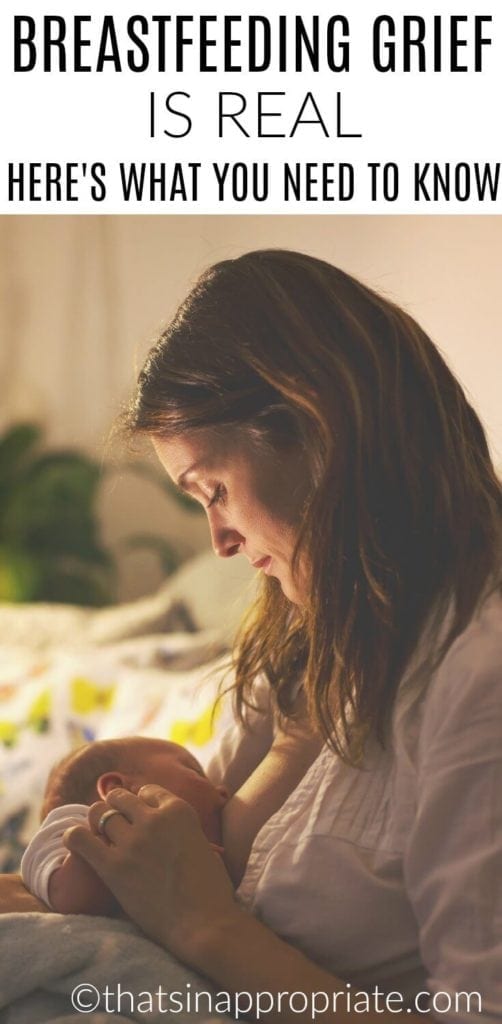Tumbling down my face, a leaden tear landed on my new baby’s forehead. Everything hurt. My mind, my postpartum body but most of all, my heart. I had an internal ache, almost like a sensation of pressure with my urge to create the milk I knew wasn’t there. I resented my body and started to question my identity, not only as a mother, but as a woman. Breastmilk was unachievable, all I could produce were tears.
During the vulnerable, uncertain first few weeks in motherhood, I felt isolated and inferior. I couldn’t explain why I was feeling such anguish during a time that I presumed to be filled with overwhelming love and happiness. It turns out I was suffering from an unspoken condition I refer to as ‘Breastfeeding Grief’. The guilt, despair, annoyance and frustration of feeding my baby became a consuming focus. On reflection I can describe feeling like my mind was overpowered by a mist that distorts reality and suffocates reasonable thinking.
My inability to breastfeed wasn’t a surprise for me. I knew that I had a physical condition that would prevent me from doing so. I was fully prepared to use formula milk and I was content in the knowledge that formula is good, safe and regulated nutrition for babies. I was therefore completely blindsided by these emotions. They developed day by day, deeper and more painful than I could ever describe. My baby at my chest, yet there was nothing I could give.

It was this crippling outlook, the fixation on the negative, that was damaging everything. One day, I was staring in the mirror at my ‘useless’ breasts when my baby started crying. I held him close to me and comforted him until he was calm. As I looked lovingly at my son in my arms, it suddenly hit me; he felt the connection and familiarity of me soothing him on my chest. He mellowed to my voice and heartbeat, all whilst resting peacefully on my breasts. I was so focused on what my body couldn’t do, that I forgot what was most important from a mother; the ability to provide warmth, love and comfort. I was already providing my baby with the best nutrition I could.
This very brief moment literally saved me. It woke me up to the reality of my journey with my son. It ultimately prevented my spiral into postpartum depression because it was from here I could begin to build on accepting that this relationship is like no other. This was perfectly ours. Going forward, I embraced the tender bottle-bonding moments; our eyes gazing into each others, little fingers clasped to mine, the peace. They are precious memories I will cherish forever.
I was lucky to experience this self-realisation. I’m in a position to know that thousands of women struggle to overcome the grief. Which is exactly what this phase is; to come to grief is defined in the dictionary as to suffer disappointment, misfortune, or other trouble; “fail”.
During pregnancy we are all exposed to systematic literature and conversations surrounding the idea of ‘what is best for baby’. It is this pressurized communication which is creating anxious mothers who feel like it’s their duty to breastfeed. The current trend is to place full responsibility of successful breastfeeding solely on the mother which is outrageous and unfair. Our duty is to ensure our baby is fed.

The method shouldn’t be a focal point. Exclusive breastfeeding can be a goal, but not an instant and stressful demand, particularly when there are clear supply issues. By removing the divide between breast and bottle we would eliminate the pressure and the attitude of ‘failure’ that exists. It’s this ‘good vs bad’ notion which is the direct cause of the unfair and unnecessary guilt and shame towards the use of formula.
If a woman has a physical inability to breastfeed, I guarantee she would have had to justify her position many times before her baby even arrived. The discussions surrounding infant feeding in the antenatal phase are plain and simple; breastfeeding is best. Thus making any other method lesser. Many professionals claim it is against their policy to give advice on anything that isn’t breastfeeding so women like me have to constantly convince people that we genuinely can’t breastfeed. It also means that we’ve struggled to gain any unbiased guidance or support when it comes to bottles, formula and bonding tips.
If a woman was fully intending to breastfeed and ended up being unable to continue, I guarantee she would have endured many days and nights (weeks, months) despairing as to why breastfeeding hasn’t gone to plan. There are multiple reasons why breastfeeding doesn’t work out; they can be physiological or psychological. Many believe that an unsuccessful breastfeeding journey is a direct result of poor maternity support services. Sometimes this is true and this is when the system is failing mothers and babies. Infant feeding, particularly when establishing breastfeeding, is stressful, difficult and intricate; support should be a priority. However, there are an abundance of mothers receiving good quality care and guidance, yet still being unable to successfully breastfeed. Nature can be cruel and unfair, and it can simply be a case of biological luck whether breastfeeding is possible.
To anyone reading this who can relate to my story, the feelings of sorrow, anxiety and/or depression, please take comfort in knowing that you are not alone. I know it’s not discussed by many people, almost like it’s a taboo topic. Do not feel ashamed. I promise that as the days, weeks and months pass, and your precious child grows into the most happy, healthy and charismatic little being in your world; the pain will fade. You’ll gain a new found respect for bottle-feeding and the formula milk that provided the nutrients your baby needed to thrive.
In an ideal world, society will abolish the appalling blanket mindset of ‘Breast is Best’ and replace it with an open approach which is individual to each mother and baby.
Breast can be best. Formula can be best. A healthy and happy mother is always best for baby.
Holly Leppard is the founder of ‘Don’t Judge Just Feed’ support network and campaigning for inclusive feeding education and equality. She writes about maternal mental health and breastfeeding grief. She is a Writer, Maternity Nurse, Wife, and Mother. Find her on Facebook, Instagram and Twitter.
[fl_builder_insert_layout id=”17382″]
[fl_builder_insert_layout id=”12613″]











